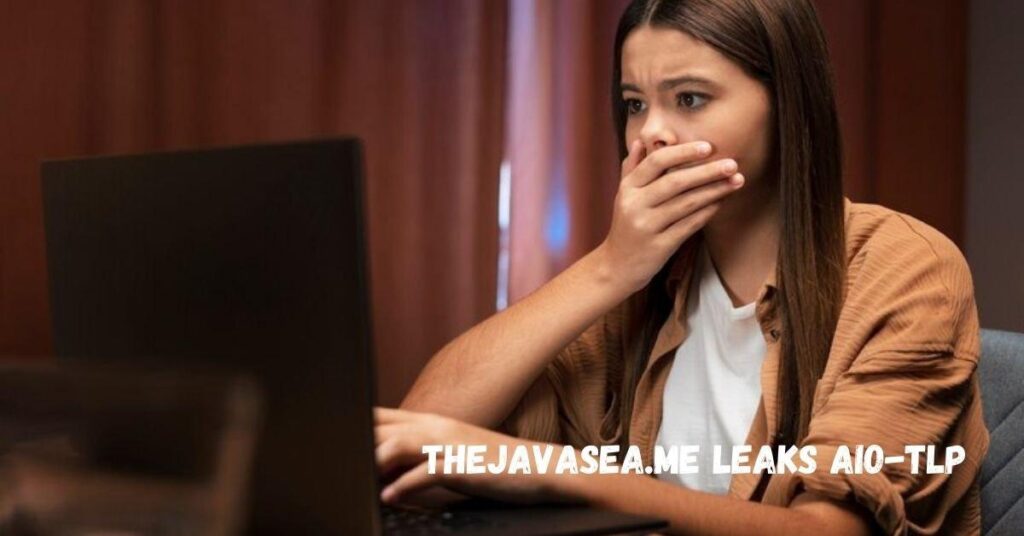In recent weeks, the buzz surrounding thejavasea.me leaks aio-tlp has stirred up a significant amount of attention across online communities. This term, seemingly cryptic at first glance, has led to a deep dive into the darker corners of the internet, exposing individuals to both the risks and rewards of accessing restricted or illegal content. In this article, we’ll explore what thejavasea.me leaks aio-tlp refers to, its implications on digital security, and its place in the broader landscape of cybercrime.
What is thejavasea.me leaks aio-tlp?
To fully comprehend the ramifications of thejavasea.me leaks aio-tlp, it’s important to first understand the specific terminology involved. The phrase itself appears to be a combination of several concepts, each of which plays a crucial role in its overall meaning.
Thejavasea.me: This is the name of a website or forum, a domain that has gained infamy for hosting illicit content, often shared via underground forums. Many users access thejavasea.me to gain access to cracked software, stolen personal data, and other forms of unauthorized or pirated material.
Leaks: In this context, the term refers to the unauthorized release of confidential data, software, or content. These leaks can range from highly sensitive personal data to software cracks or even the release of entire proprietary databases.
AIO-TLP: This acronym stands for “All-In-One Tool Leak Pack.” It’s essentially a collection of different digital tools and software, which may range from keyloggers and password crackers to software cracks and exploit kits. These are often sold or distributed for free in order to gain access to networks, accounts, or personal data illegally.
The combination of these elements suggests that thejavasea.me leaks aio-tlp refers to a collection of software and tools that were leaked through the website, enabling illicit access to systems and data.
The Rise of thejavasea.me and Its Role in Cybercrime

Thejavasea.me gained its notoriety in the cybercrime world for being one of the key hubs for illicit software distribution. While it often flew under the radar for many casual internet users, those involved in hacking and cybercrime communities knew of its existence and regularly accessed the site for various resources. With its large collection of stolen tools, leaked software, and cracked applications, the website became a go-to source for those seeking to exploit systems for profit or personal gain.
As the website gained more attention, it began to offer more than just the occasional leak. Thejavasea.me was soon found to be at the heart of distributing AIO-TLP collections, which are particularly prized in underground hacking communities for their comprehensive nature. These AIO-TLP leaks are essentially multi-tool packages that make it easier for cybercriminals to execute their operations. From credential theft to system breaches, AIO-TLP packs provide everything a hacker needs in one place, making them an irresistible resource.
The fact that thejavasea.me leaks aio-tlp packages are widely distributed means that they can reach a large audience, and as a result, more people are exposed to the risks of cybercrime. While some individuals may access these tools out of curiosity, others may have more malicious intentions, hoping to leverage the tools for financial gain or to cause harm to their targets.
The Dangers of Using Leaked Tools
While the distribution of tools like thejavasea.me leaks aio-tlp may sound appealing to those interested in hacking or bypassing security measures, the risks involved are significant. Using leaked or illegal tools exposes individuals to numerous dangers, both personal and legal.
1. Legal Consequences
The most obvious risk of accessing content such as thejavasea.me leaks aio-tlp is the potential for severe legal consequences. Hacking, data theft, and the use of cracked software are all illegal activities in most jurisdictions around the world. Even if someone were to access these tools with no malicious intent, the mere possession or distribution of illegal software can result in criminal charges, fines, or imprisonment.
2. Malware and Viruses
Many of the tools found on thejavasea.me leaks aio-tlp are not only illegal but also pose significant security risks. Cybercriminals often use these leaks to distribute malware, viruses, and trojans. When downloading these so-called “tools,” users may unknowingly install malicious code on their systems. This malware could steal sensitive information, corrupt files, or even take control of the infected system, turning it into a botnet for further cybercrime.
3. Loss of Privacy
Anyone using software or tools from thejavasea.me leaks aio-tlp runs the risk of compromising their own privacy. Many of these leaks come bundled with spyware, which can monitor online activity and track personal data. For someone accessing thejavasea.me leaks aio-tlp with the intention of hacking or stealing information from others, there is a high chance that their own data could be compromised in the process.
4. Reputation Damage
Using tools from thejavasea.me leaks aio-tlp can cause irreversible damage to one’s reputation. If caught, a person’s name could be tarnished in professional circles, and they may be ostracized from online communities. Law enforcement authorities may also begin monitoring individuals found engaging in these activities, further adding to the damage to their online reputation.
The Impact of AIO-TLP on Online Security

The widespread availability of thejavasea.me leaks aio-tlp is not just an issue for the individuals involved but also has a much broader impact on online security. These leaks, when used for malicious purposes, can create widespread vulnerabilities across various systems, networks, and platforms.
1. Increased Cybercrime Activity
The distribution of thejavasea.me leaks aio-tlp tools has undoubtedly fueled the rise in cybercrime. By making it easier for individuals to hack into systems or steal personal data, these tools contribute directly to an increase in malicious activity online. The accessibility and ease of use of these tools mean that even novice hackers can wreak havoc on unsuspecting targets.
2. Infiltration of Critical Infrastructure
AIO-TLP packs often contain tools that are capable of breaching even well-secured systems. When used against government agencies, financial institutions, or large corporations, these tools can result in the theft of classified information, ransomware attacks, or significant system outages. In some cases, these breaches could disrupt entire industries, affecting millions of people in the process.
3. Data Breaches
With tools like those found in it, cybercriminals can easily infiltrate databases and steal large volumes of personal data. This data can be sold on the dark web or used for identity theft, credit card fraud, or other illegal activities. The results can be devastating for individuals and organizations alike, as the consequences of a data breach can range from financial losses to long-term reputational harm.
4. Increased Security Measures
On the flip side, the rise of tools such as this has pushed companies and organizations to invest more heavily in cybersecurity. In response to the growing threat, many companies are enhancing their defenses, adopting more robust encryption methods, and employing more advanced monitoring systems to detect and prevent cyberattacks.
The Ethics of Downloading and Using Leaked Software

While some might argue that the use of it and similar tools is a personal choice, it’s important to remember the ethical considerations surrounding such actions. Beyond the legality of accessing stolen or cracked software, individuals should also consider the broader consequences of their actions.
Downloading or using illegal software from it not only violates the intellectual property rights of developers and creators but also contributes to the overall degradation of trust in the online ecosystem. The very nature of leaks and hacks undermines the security measures designed to protect both individuals and organizations. Engaging in these activities fuels a cycle of criminality that ultimately harms everyone involved.
Conclusion
In conclusion, it represents a dangerous and growing trend in the world of cybersecurity and cybercrime. The accessibility of tools that enable illegal activities can have far-reaching consequences for individuals and organizations alike. While some might view these tools as a way to bypass security measures or gain unauthorized access to systems, the risks involved far outweigh any potential benefits.
The illegal distribution of tools like those found on it not only threatens individual privacy but also puts critical infrastructure at risk and undermines the trust necessary for the digital age. The ultimate lesson here is that the world of cybercrime is not only illegal but fraught with dangers that can result in serious consequences. It is crucial for both individuals and organizations to remain vigilant and protect themselves from the ever-present threat posed by these kinds of leaks.







